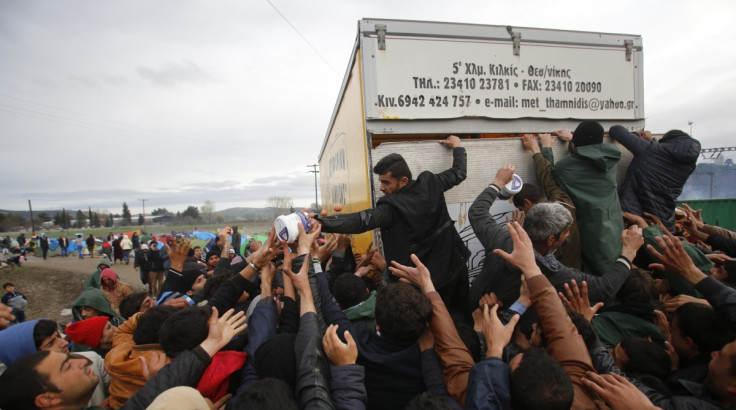Refugee crisis: Italy fears Albanian migrants will use discarded smugglers' route to enter country

The closure of the Balkans route used by migrants to reach northern Europe from Greece has raised concerns in Italy that thousands could take to an old smugglers' pathway that runs from Albania to the southern Apulia region. More than 40,000 people are stranded in Greece – including 14,000 camped around the northern frontier town of Idomeni – after their passage was blocked by border closures from Austria to Serbia and Macedonia.
Desperate to reach their destination of choice, many are expect to try escaping the impasse by opening alternative northbound routes. A possible option runs through the Albanian mountains and across the Adriatic Sea to southern Italy. It would be a déjà vu for Italians, who saw thousands of Albanian migrants arriving via boat on Apulian shores in the 1990s.
Italian authorities are preparing to take adequate measures, although they stressed that there have been no arrivals from the Balkans yet. "So far we have no evidence of any huge flow," interior minister Angelino Alfano said. "We are used to making previsions but also observe reality. Logic suggests that a route could open but this is not a fact today."
Meanwhile Rome was reportedly in talks with Tirana and Montenegro to set up a joint effort against human smugglers. Italy has already received almost 10,000 migrants who arrived from Northern Africa on the so-called central 'Mediterranean route' so far in 2016, roughly the same amount that arrived in the same period of 2015, when a total of 153,842 people reached the country, according to the International Organisation for Migrantion (IOM).
The number is quite low if compared to Greece, which has seen 131,847 people coming in from Turkey since the the start of the year. Albania and Italy are not the only options for the thousands that arrive there every day. Some are already bypassing Macedonia reaching Serbia from Bulgaria, while other potential routes ran past Hungary and Romania.
"Albania is just one of the possibilities," Frontex's deputy executive director, Berndt Korner, told AP. "The same goes also for the western coast of Greece, the same might also go for Montenegro," he added. "(Whether) it goes up to Croatia remains to be seen, but it is definitely one of the possibilities that are under consideration."
Some have argued that a deal the EU negotiated with Turkey to return people crossing to Greece might actually worsen the situation, leaving migrants with no other option that embarking on more dangerous and clandestine journeys. "This agreement will dramatically reduce the legal entry points into the Union, forcing desperate refugees to look for other routes," warned Guy Verhofstadt, the leader of the liberal ALDE bloc in the European Parliament. "We will see again the revival of the Lampedusa route, a new Malta route, a new Albanian route, a new Bulgarian route."
© Copyright IBTimes 2025. All rights reserved.






















